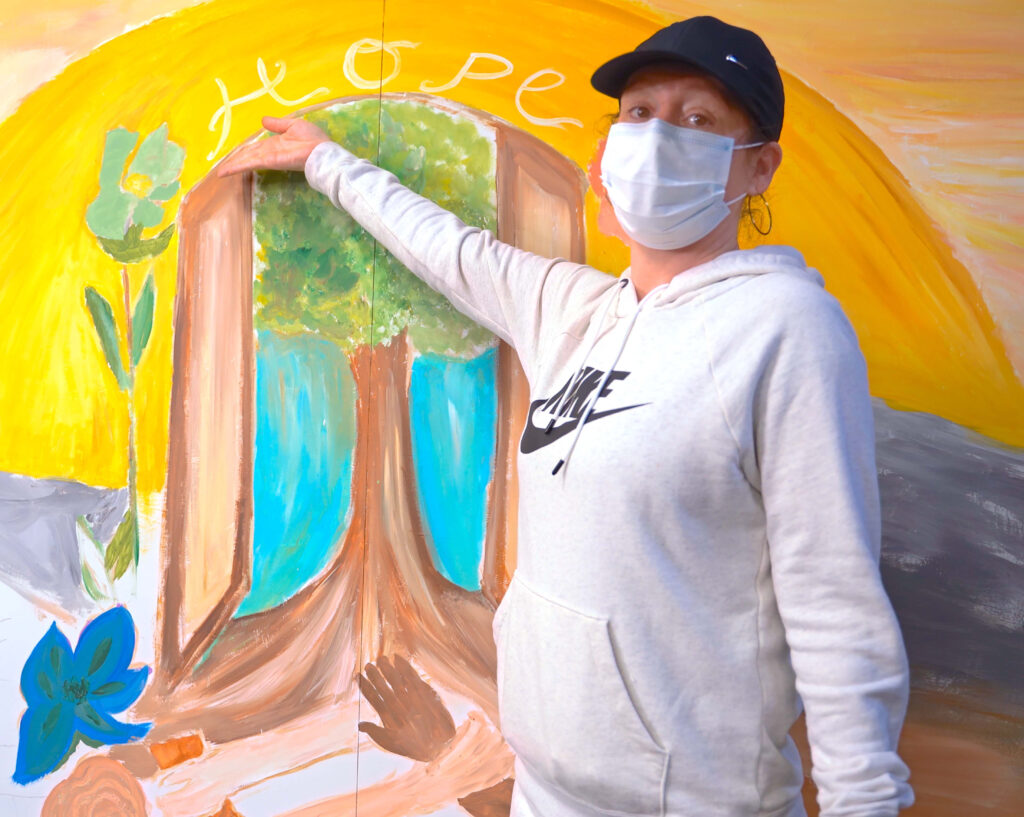News
The Wright Center proudly assists drop-in center with services to Scranton’s homeless
Editor’s note: The Wright Center for Community Health is privileged to partner with many of the region’s nonprofit groups to better meet the needs of Northeast Pennsylvania’s residents. This is one in a series of articles highlighting those partnerships and how they directly impact people’s lives.
Partnership with Community Intervention Center offers safety net to those in need of shelter and ‘fresh start’
Bounced out of foster care when she turned 18, Angela Powers spent a “rough” five years dealing with homelessness, often staying on the streets of New York City’s Times Square.
She then moved to and worked in Scranton, where her fortunes seemed on the upswing. But the house in which she lived in 2007 was condemned, thrusting her back into an uncertain and unsafe situation. “I had no relatives in Scranton,” Powers recalls. “I had no friends.”
She turned to the Community Intervention Center (CIC) – a now 50-year-old nonprofit in Scranton that provides shelters, apartment-style supportive housing, case management and related services for historically marginalized populations such as adults who are experiencing homelessness.
“They have helped me in every way possible,” says Powers, 43, who now lives in an apartment and is pursuing her bachelor’s degree in human services. “There’s no limit to the help that they try to give you. They do things from the heart.”
The Wright Center for Community Health – a nonprofit with a similarly long presence in Lackawanna County and a heart for helping people – is proud to routinely partner with the CIC, supplying its clients, like Powers, with the primary health care and other forms of compassionate assistance they deserve.
During the COVID-19 pandemic, for example, The Wright Center dispatched its mobile medical unit, Driving Better Health, multiple times to CIC’s daytime drop-in center on Sixth Avenue, enabling clients there to receive coronavirus tests and vaccines. On the mobile unit’s first trip to the CIC in April 2021 nearly 30 people received the first dose of the coronavirus vaccine. Flu vaccines also have been made available.

While at the drop-in site, The Wright Center’s team will sometimes distribute hygiene products, blankets and other essentials to those who want them. And the team offers “to-go packages,” each containing bottled water as well as easy-to-carry foods such as sandwiches and breakfast sandwich bars.
“The CIC’s clients are so appreciative of the items and services that we are able to provide them during our visits,” says Allison LaRussa, director of health humanities at The Wright Center. “It’s a privilege to get to know these individuals and to spend time talking and sharing stories with them, as I have, while recently assisting in the painting of a mural there that enlivens the space and reflects their hope for brighter days ahead.”
The Wright Center and CIC not only share a common purpose when it comes to helping marginalized communities, they also share proximity. The nonprofits’ headquarters in the city are about 1-mile apart. That’s especially convenient if CIC clients require speedy treatment for a health-related issue, says longtime CIC employee Jason Griffiths.
“The Wright Center allows us to make an appointment for our clients, and they get right in,” says Griffiths, a permanent supportive housing case manager. “That’s great for us, and for the client.”
At The Wright Center’s Scranton Practice, for example, patients have the convenience of going to a single site to access medical, dental and behavioral health services. No patient is turned away due to an inability to pay.

Beyond primary care, The Wright Center’s team tries to provide CIC clients with an emotional boost by scheduling occasional social activities at the drop-in center near downtown Scranton, which on most days draws 60 to 80 people.
CIC’s drop-in center can trace its roots back to 1972. It historically has served adults facing homelessness as well as individuals who are coping with substance use disorders or behavioral health issues. Today, the center offers a safe and sober environment that furnishes everything from essentials (shower and laundry facilities, food and coffee) to recovery services to occasional chiropractic care and yoga. For some clients, it’s purely a place to socialize among friends.
The Wright Center’s Patient & Community Engagement team goes to the CIC regularly, with trays of pizza in hand, engaging clients in fun activities such as bingo games and holiday crafts. Most recently, with guidance from LaRussa, about 15 CIC clients completed the mural project titled, “Instilling Hope.”
Hope can sometimes be hard to find for people in Lackawanna County who are classified as homeless, previously estimated at 150 or more individuals who are unsheltered or are sheltered in emergency/transitional housing. That’s why, after a half-century of service, the CIC’s daily operation continues to be so essential to individuals – and to the Greater Scranton community.
“We have 26 apartments in which we’ve taken 26 people off the streets who used to live in abandoned buildings and under bridges and put them into permanent supportive housing,” says Griffiths. “They have us as a case manager to help them get back on their feet.”
Powers can attest that the CIC and its community partners are able to successfully deliver the services – and, just as important, the psychological boost – to change the trajectory of a person’s life.
“This drop-in center is where you can get a fresh start,” she says. “It’s not just about taking a shower. It’s not just about having somewhere to have a cup of coffee. It’s about feeling cared for and accepted.”
Learn more about the Community Intervention Center by visiting its website, communityinterventioncenter.net. For more information about The Wright Center for Community Health and its subsidiary, The Wright Center for Patient & Community Engagement, visit thewrightcenter.org or call 570.941.0630.








